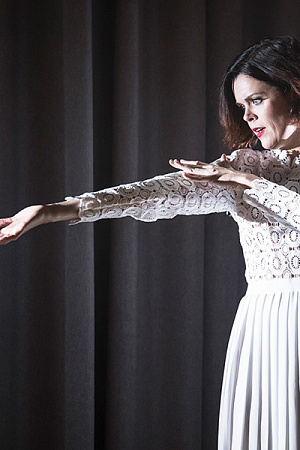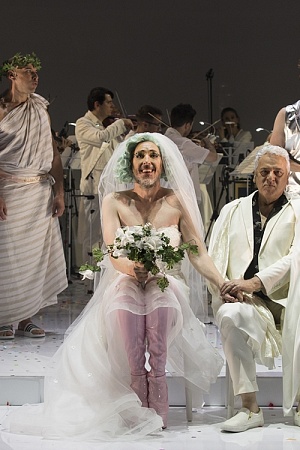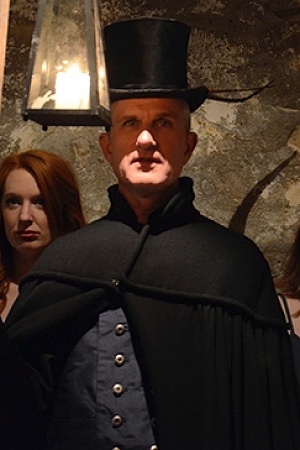Theodora (Pinchgut Opera) ★★★★
‘The Jews will not come to it because it is a Christian story and the ladies will not come because it is a virtuous one.’ George Frideric Handel’s much-quoted explanation for the lack of success of Theodora, his penultimate oratorio, may or may not be accurate, but there is no doubt about its failure. After an original run of just three performances in 1750, it was briefly revived in 1755 and then sank into obscurity. It remained, however, one of Handel’s favorite works. He complained bitterly to a couple of musicians who asked him for comps to Messiah; ‘Oh your servant meine Herren! You are damnable dainty! You would not go to Theodora – there was room enough to dance there when that was perform (sic)!’ When the librettist for Theodora, Thomas Morell, asked him if he considered the Halleujah chorus his masterpiece, Handel replied, ‘I think the chorus at the end of the second part in Theodora far beyond it, He saw the lovely youth etc.’
It took Peter Sellars’s astounding 1996 Glyndebourne staging to bring the work back from the dead. Starring Dawn Upshaw and introducing to European audiences the splendid David Daniels and Richard Croft and the irreplaceable Lorraine Hunt, Sellars brought the work into the present. As one magnificent aria followed another, punctuated by compelling choruses that range from the grief stricken to the rhapsodic and Handel’s music again and again lifted Morell’s somewhat pedestrian libretto to the heights, the audience gradually realised that they were in the presence of that rarest of creatures the ‘neglected masterpiece’ that actually was a masterpiece.
Continue reading for only $10 per month. Subscribe and gain full access to Australian Book Review. Already a subscriber? Sign in. If you need assistance, feel free to contact us.











Leave a comment
If you are an ABR subscriber, you will need to sign in to post a comment.
If you have forgotten your sign in details, or if you receive an error message when trying to submit your comment, please email your comment (and the name of the article to which it relates) to ABR Comments. We will review your comment and, subject to approval, we will post it under your name.
Please note that all comments must be approved by ABR and comply with our Terms & Conditions.